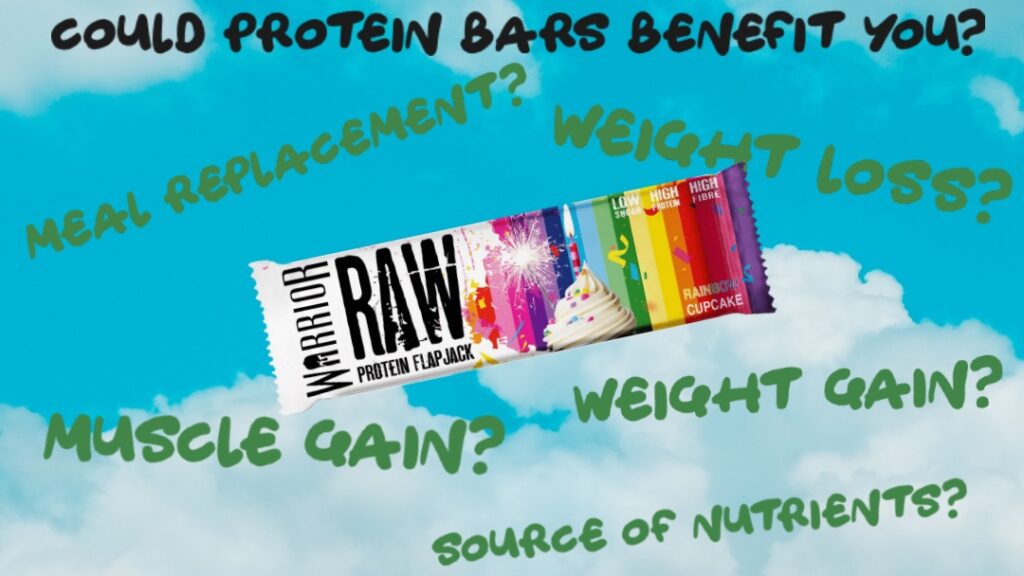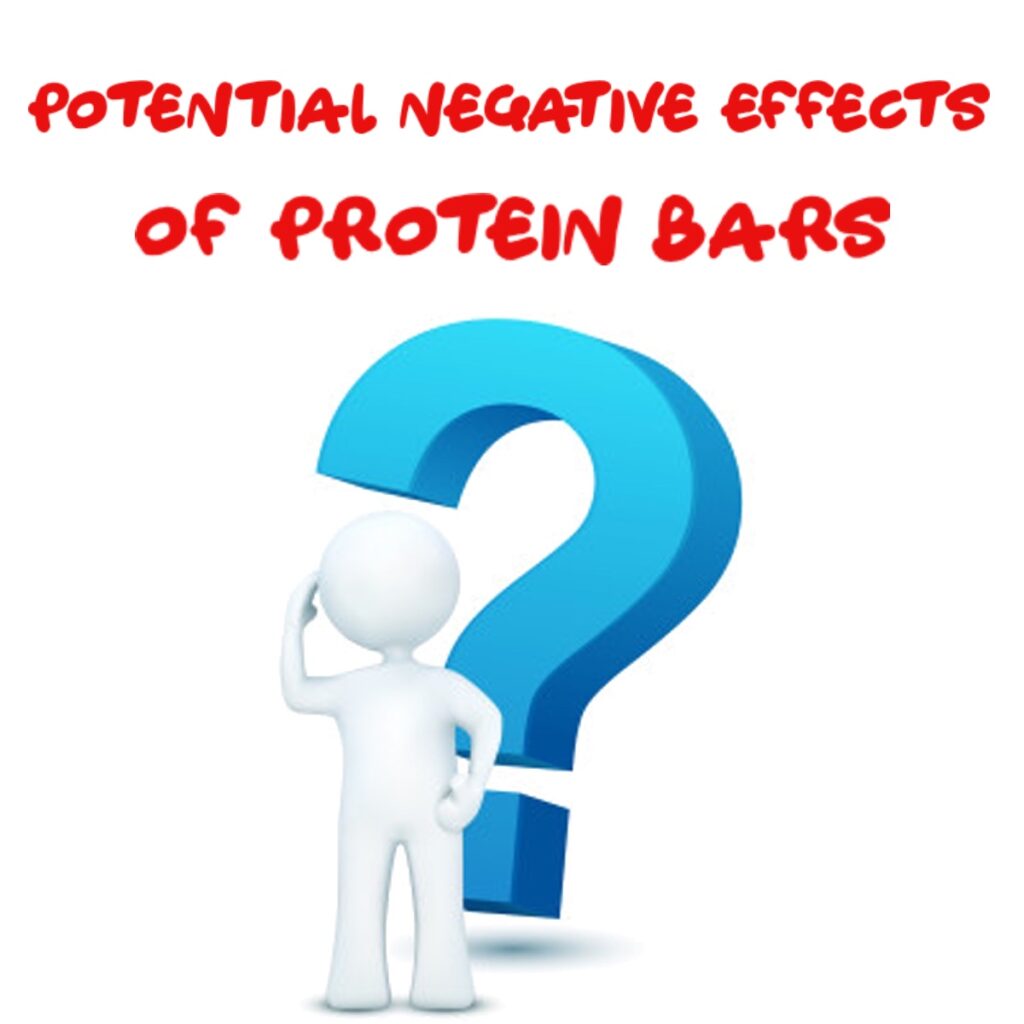
Many of us have busy and active lifestyles, so it is no surprise that protein bars are gaining popularity as a convenient way of adding extra protein and additional nutrients to our diet.
As more and more protein bars appear on the market, we’ll guide you through the key things to look out for, the pros and cons, and how to incorporate them to suit your lifestyle.

Nutrition
The nutritional content of protein bars can differ significantly between brands and even between flavours.
This is mainly down to the wide range of ingredients they can contain. Many protein bars may be made from dates and dried fruit, nuts and seeds, and whole grains like oats or quinoa.
On average your typical protein bar contains 5–10 grams of fat, 25–35 grams of carbs, and 5–10 grams of fibre.
Along with offering protein and carbs, many protein bars are a good source of micronutrients, such as calcium, B vitamins, potassium, and iron.
One thing to look out for is the sugar content. A lot of protein bars also contain high amounts of added sugar and use unhealthy sweeteners for example high fructose corn syrup, which adds excess fructose to your diet and can increase your risk of fatty liver, obesity, and diabetes when consumed in high amounts.
In general the majority of protein bars offer 150–400 calories and 10–20 grams of protein, with a few containing closer to 30 grams of protein per serving
The source of protein varies widely. Some bars feature yoghurt powder, milk, or dairy proteins like casein and whey, while others use plant-based sources like soy, pea, or brown rice. Some contain egg whites, while others rely on nuts and seeds as a primary protein source.

You can eat protein bars whenever you like but there are times they may be more beneficial to you.
Convenient source of nutrients
Protein bars can be a simple, convenient nutritious snack. Coming in a wide variety of flavours and typically lasting a while, making them a convenient item to keep on hand.
If you’re looking for as a midday snack, a well-rounded bar containing a reasonable amount of protein and high quality ingredients may be practical option for your lifestyle.
The protein and carb contents of protein bars may make them an excellent choice for a pre- or post-workout snack that can provide a boost of energy for exercise and / or aid muscle repair after working out.
Protein bars can often be a good source of dietary fibre, which is important for your digestive health and may help prevent overeating between meals.
Finally, many protein bars are a good source of vital vitamins and minerals, such as calcium, iron, magnesium, potassium, phosphorus, vitamin E, and B vitamins, helping you meet your daily needs for these micronutrients.
Weight loss
Many people use protein bars to help support their weight loss.
Recent studies indicate that high protein diets can be more conducive to healthy weight loss than diets containing a standard amount of protein. This is likely due to the filling effects of protein, which can curb your appetite and help prevent overeating.
If you do choose to use protein bars for this purpose, you should keep in mind that healthy weight loss requires an overall balanced diet and regular exercise.
Weight gain
When gaining weight, you must consume more calories than you burn in a day. If this is your goal, protein bars may be a key addition to your diet.
Many protein bars are calorie dense, providing a large amount of calories in just one serving, making it easy to add calories without having to eat a lot of extra food.
Some protein bars may contain more than 350 calories per bar. These can easily be consumed between meals to add extra calories to your diet and promote weight gain.
Even when your intent is to gain weight, try opting for protein bars that provide wholesome ingredients rather than those packed with added sugar and additives.
Meal replacement
Protein bars are often seen as an alternative to meals particularly breakfast.
A protein bar doesn’t compare to a breakfast made with a variety of healthy whole foods, however, if you’re looking for a quick breakfast on occasion, protein bars on the higher calorie end that don’t contain added sugar or hydrogenated oils may be a good option.
Muscle gain
If you’re a very active with a lot of muscle mass, or you are looking to gain muscle mass, adding more protein to your diet may help you achieve your goals
The American College of Sports Medicine recommends that endurance athletes and strength-trained athletes consume 0.54–0.77 grams of protein per pound (1.2–1.7 grams per kg) of body weight.
Research suggests that supplementing with protein may increase muscle mass and performance as long as your overall physical activity level and diet are adequate.
Overall protein bars can be a convenient way to add carbs, protein, vitamins, and minerals to your diet. They can also curb appetite, fuel a workout, or support muscle repair after exercise. However, they can’t replace the quality and nutrient composition of whole foods.

The huge choice of protein bars available can make it difficult to determine which one is best for you and a good fit for your goals.
- Check the sugar content. Some protein bars are high in added sugar (and therefore calories) that they would be better placed in the confectionary aisle of a supermarket.
- Look out for other sweeteners. Sweeteners are often added to enhance the flavours. They can vary from more natural sweeteners like dates, honey or stevia to processed options like high fructose corn syrup. Check that they align with your personal needs and preferences
- Fat content. While the fat in some protein bars often comes from whole nuts and seeds, others use processed plant oils, like palm, canola, peanut, or soybean oil.
- Are you already consuming enough protein? Eating protein in excess doesn’t appear to benefit the health of the average person. Doing so may even be harmful in some cases. As always, it is important to keep in mind that some people, including athletes, pregnant and breastfeeding women, and those with certain chronic illnesses, need more protein on a daily basis than the general population. Always check with a medical professional if you have any medical conditions or concerns.
- Value for money. Protein bars can vary greatly in their cost and value for money. In addition to checking for high-quality ingredients, it may help to compare the unit price and determine which brands offer the greatest value.

Protein bars are a quick and convenient way to add more protein and other nutrients to your diet. However, not all protein bars are created equal.
Some are high in calories and added sugar and use ingredients you may want to avoid. Others may be an appropriate choice to fuel your workout, stabilize your blood sugar between throughout the day, or even start your morning on the go.
If you choose to use protein bars, be sure to look at the nutrition panel and ingredient list to help you decide which one is best for your lifestyle.





Leave a Reply